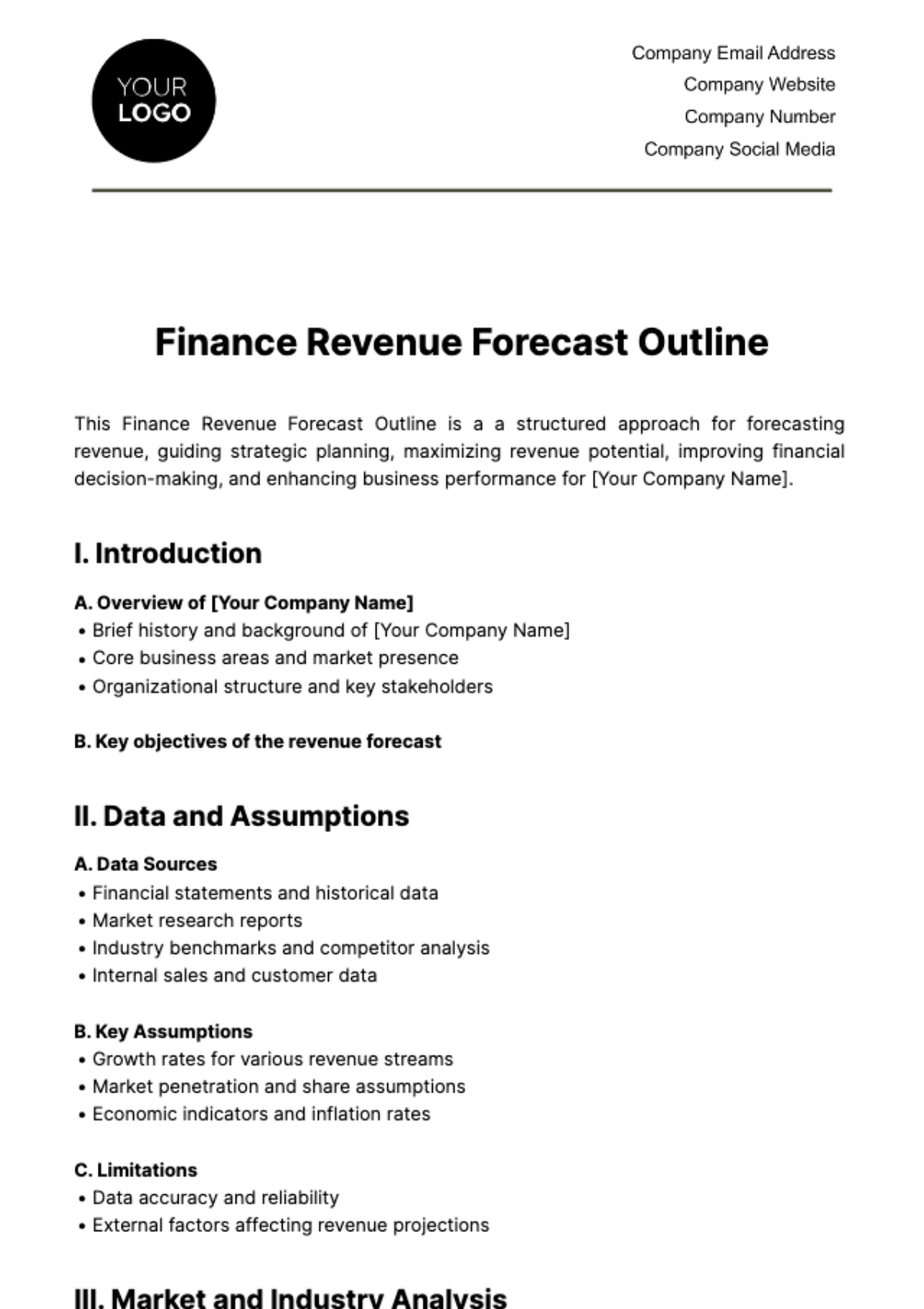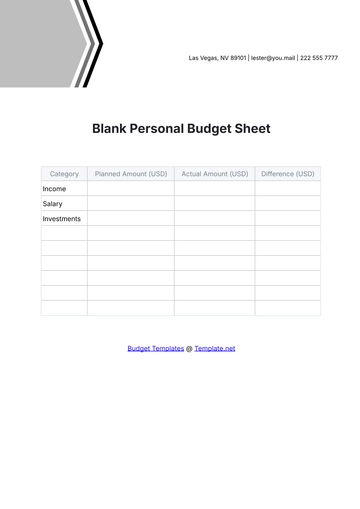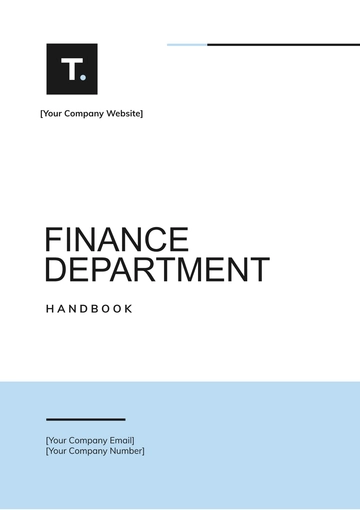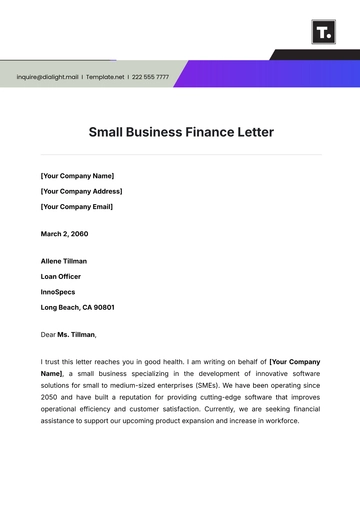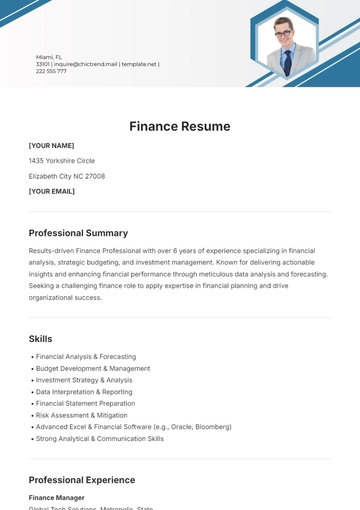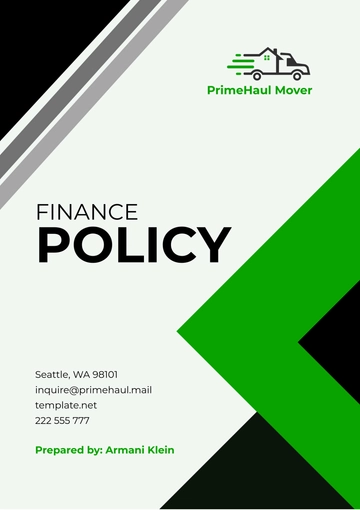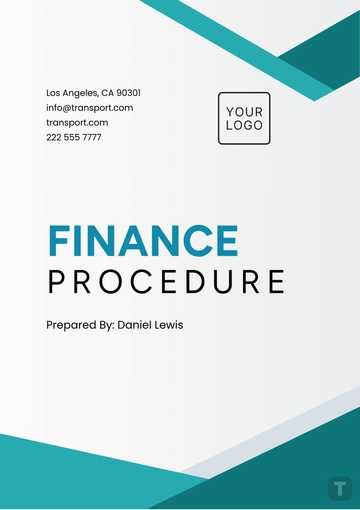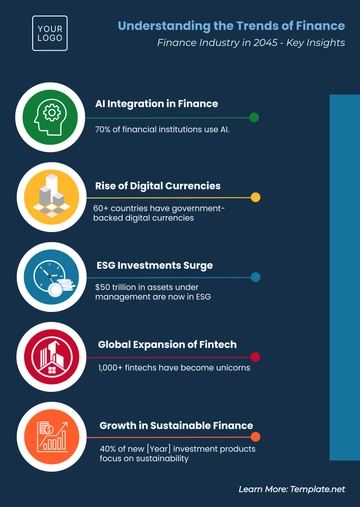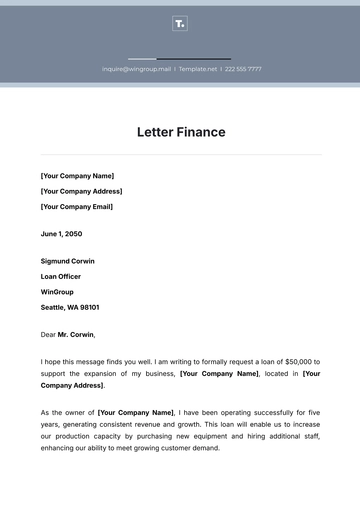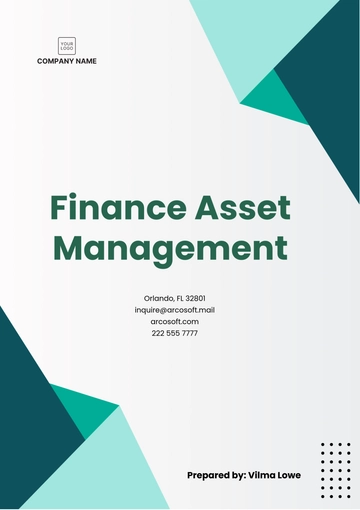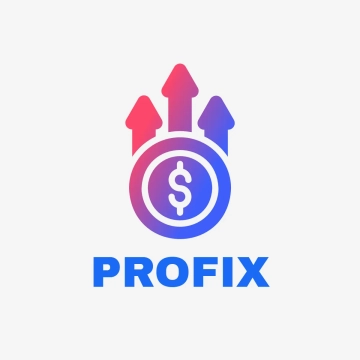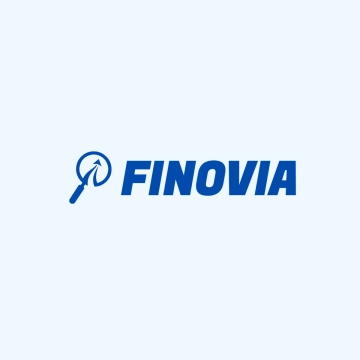Finance Revenue Forecast Outline
This Finance Revenue Forecast Outline is a a structured approach for forecasting revenue, guiding strategic planning, maximizing revenue potential, improving financial decision-making, and enhancing business performance for [Your Company Name].
I. Introduction
A. Overview of [Your Company Name]
Brief history and background of [Your Company Name]
Core business areas and market presence
Organizational structure and key stakeholders
B. Key objectives of the revenue forecast
II. Data and Assumptions
A. Data Sources
Financial statements and historical data
Market research reports
Industry benchmarks and competitor analysis
Internal sales and customer data
B. Key Assumptions
Growth rates for various revenue streams
Market penetration and share assumptions
Economic indicators and inflation rates
C. Limitations
III. Market and Industry Analysis
A. Current Market and Industry Conditions
Market size and growth potential
Competitive landscape and market share
Regulatory environment and industry trends
B. Relevant Market Trends
Technological advancements
Consumer behavior and preferences
Emerging market opportunities
C. Potential Market Opportunities and Threats
New market segments and expansion opportunities
Competitive threats and market challenges
Regulatory and compliance risks
IV. Revenue Forecast Model
A. Model Description
B. Forecasted Revenue Figures
Monthly, quarterly, and annual revenue projections
Breakdown by product/service, region, and customer segment
V. Assumptions Sensitivity Analysis
A. Examination on Economic Factors and Strategies
B. Presentation of Scenarios for Revenue Projections
Best-case, worst-case, and most likely scenarios
Sensitivity to key assumptions and variables
VI. Risk Assessment
A. Identification of Potential Risks
B. Strategies for Mitigating Risks
VII. Revenue Growth Strategies
A. Strategic Initiatives to Enhance Revenue Growth
B. Timeline and Implementation Plans for Initiatives
VIII. Monitoring and Reporting
A. Procedures
B. KPIs
IX. Conclusion and Recommendations
A. Final assessment of Revenue Prospects
B. Recommendations to Maximize Revenue Potential
Finance Templates @ Template.net
